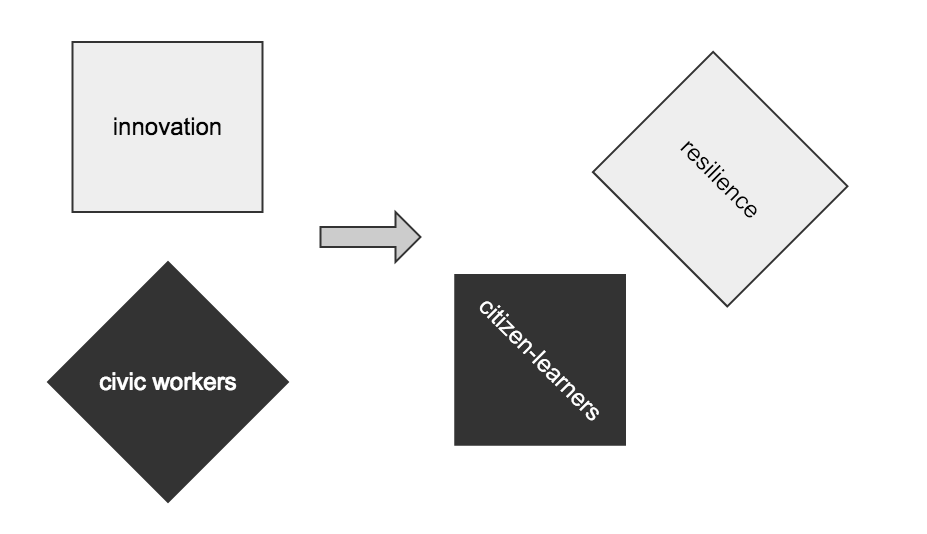Last week, I gave a keynote talk about enacting humanist possibilities at Re:Humanities, a undergraduate conference organized by Tri-Co DH (Swarthmore, Bryn Mawr, and Haverford College). In this paper, I raise the question: how do we as humanists translate humanist critiques into actionable insights? I cite Rita Felski’s list of the problems of cultural critiques — noting that critique is, by design, negative, slow, past-oriented, and produced for a small audience who produce critiques. Seeing the inactionability of cultural critiques, I advocate for a two-part process, using the musical analogy of a call and response, to transform critiques into practice.
I employ the principles of “contact -> pivot -> prototype” to suggest a new framework. I illustrate this model by discussing our design process used in the Paperphone project. I also contend for the practice of humanities-inspired speculative design (while citing Dunn and Raby’s book Speculative Everything). My talk ends with close look at my current work at an ACLS Public Fellow with the City of Los Angeles Department of Cultural Affairs, researching and designing for a more human(ist) government.
My slides are below. If you would like to see my notes, click on the little gear icon to “open speaker notes.”
Additionally, I’m working on a short essay (for an edited volume) that will refine and develop some of these ideas. The goal is to come up with a model for civic digital humanities and contribute to the larger conversation about the continuum between digital and public humanities. So any feedback is welcome!



 bio
bio